Latinos see new meaning in Dia de Los Muertos after losing loved ones to COVID-19
Álvaro Paulino Jr. and his mariachi are used to performing at parties throughout New York City this time of year, but nearly eight months into the coronavirus pandemic, his main events are now for mourners.
“We are here to say farewell to the loved ones who lost their battles against COVID-19,” said Paulino at a recent funeral mass held earlier this month in Brooklyn, New York.
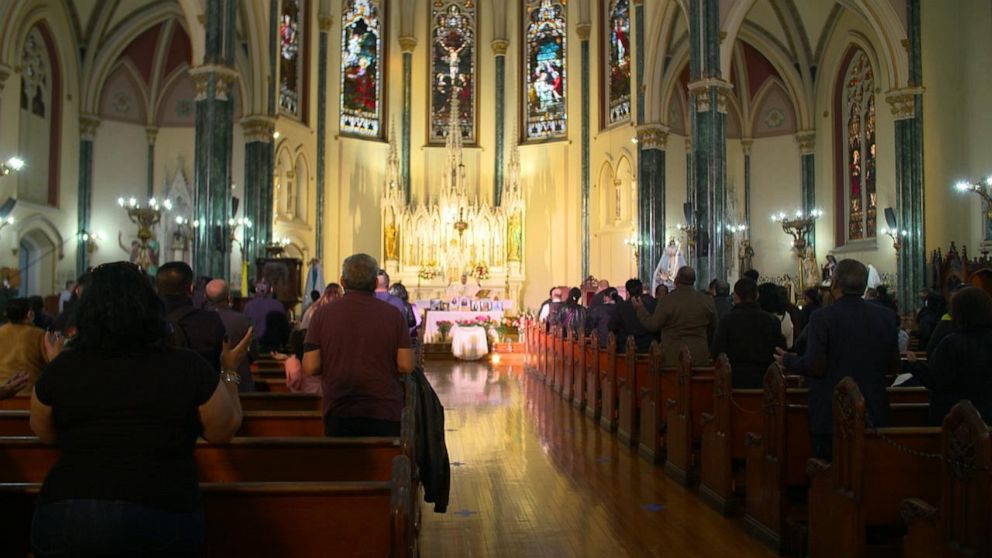
Dressed in pressed charro suits, Mariachi Tapatío de Álvaro Paulino played hymn after hymn throughout the service for the parishioners in attendance -- all of whom make up a tight-knit community of Mexican immigrants from Chinantla, Puebla.
“When they hear our notes, our songs and our lyrics, we want them to feel that they’re in Mexico, that they’re there with their families, [to] connect them in some kind of way,” said Paulino.
Maria Alvarez volunteered to organize the funeral mass for the 25 members of their community who died of COVID-19.
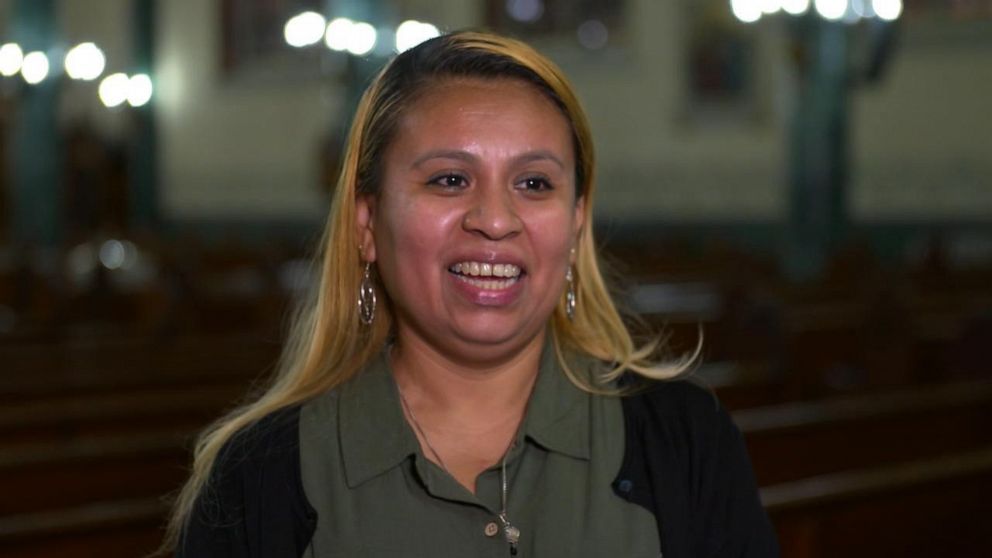
“It affected us a lot. We lost a lot of people from COVID,” said Alvarez. “That’s why we asked to do it now in October because it’s for the Día de Los Muertos.”
Día de Los Muertos, or Day of the Dead, is a widely celebrated holiday in Mexico and other Latin American countries to commemorate loved ones who have passed away.
This year, the holiday has taken on a tragic new meaning for people like Lucero Martinez Felipe. At the funeral mass, Martinez Felipe solemnly read a long list of names of people from her community who have died during the pandemic, including her mother, Paula Felipe Ramos.
“She had just flown back from Mexico. I was finishing my last semester of college ... and she knew I needed help with my 6-year-old son,” said Martinez Felipe. “She had gone for two weeks ... and we believe she got sick somewhere in the airport.”
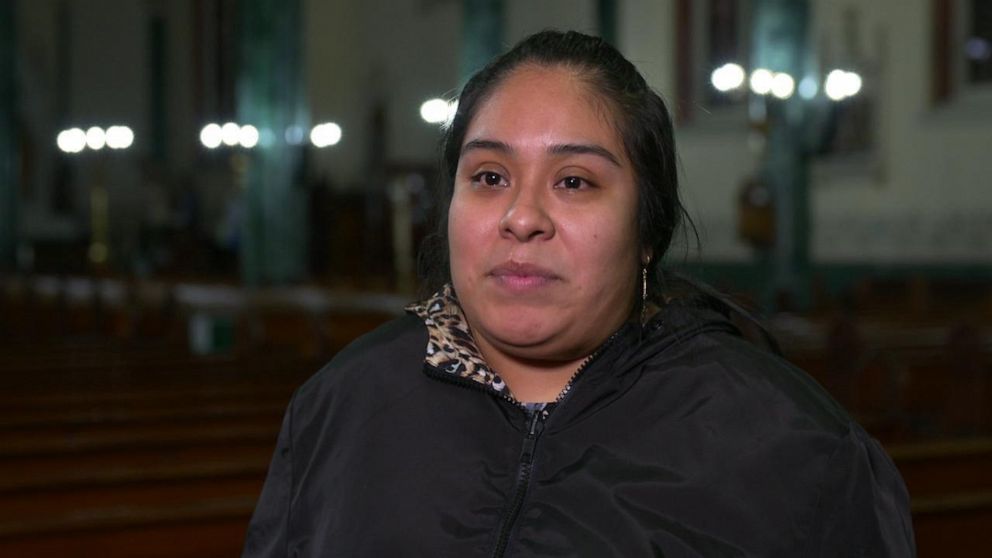
Her mother, Felipe Ramos, died of COVID-19 on April 16th at NYU Langone's Tisch Hospital just three weeks after getting sick with the virus. At the time, COVID-19 cases were growing exponentially in New York City and it was quickly becoming the epicenter of the global pandemic. Martinez Felipe was unable to have a funeral for her.
“I miss her and I needed to find certain peace in myself,” said Martinez Felipe after the funeral mass ended. “I was able to actually feel peace for the first time since the day of her passing.”
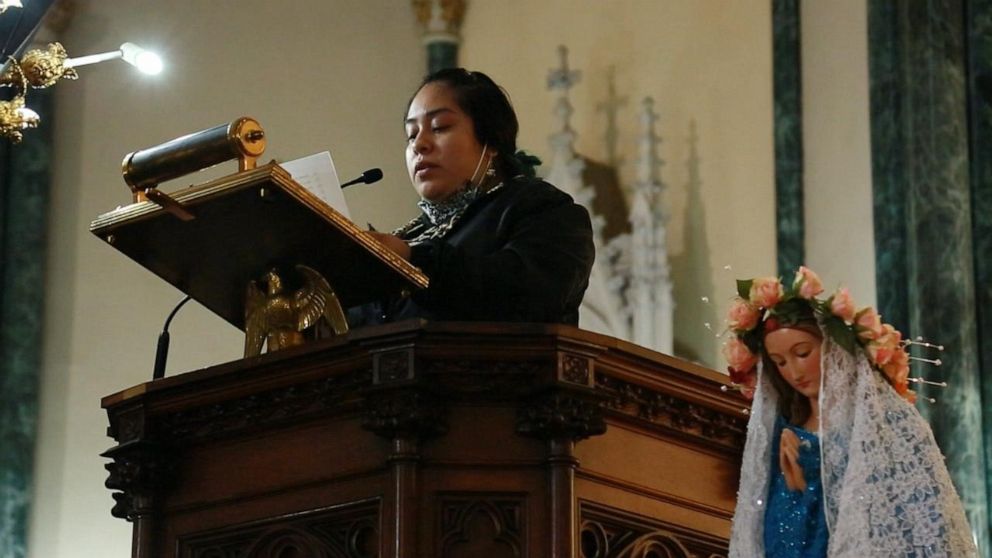
Martinez Felipe’s community is just one of many Latino communities across the country being ravaged by the coronavirus pandemic, which is killing them at a disproportionately high rate. A recent analysis from the Centers for Disease Control and Prevention of 114,411 deaths related to COVID-19 between May and August found 24% were Hispanic or Latino, despite this group comprising only 18% of the U.S. population.
Dr. Peter Hotez, dean of Tropical Medicine at the Baylor College of Medicine in Houston, is growing more alarmed by the data. During a virtual Congressional Hispanic Caucus briefing in late September, Dr. Hotez described the impact of Covid-19 on Latinos as a “historic decimation.”
“Given the fact it's hitting Hispanics in their 40s, 50s and 60s, what that really means is it's robbing families for this whole generation of their mothers and fathers and brothers and sisters,” said Hotez in an interview with ABC News.
“It's been really devastating not only in terms of the number of people who are dying, but also affecting a much younger age group,” he added.
Health experts say the reasons behind the coronavirus’ disproportionate toll on Latinos is multifaceted.
“We are much more likely to be essential workers. We have to be out there in the pandemic. Some of them had to take public transportation. There was no choice,” said Dr. Olveen Carrasquillo, a Puerto Rican native and chief of internal medicine at the University of Miami health system. “Many of us live in more crowded housing, places of higher social density. All those things have been a major issue why Latinos are at higher risk.”
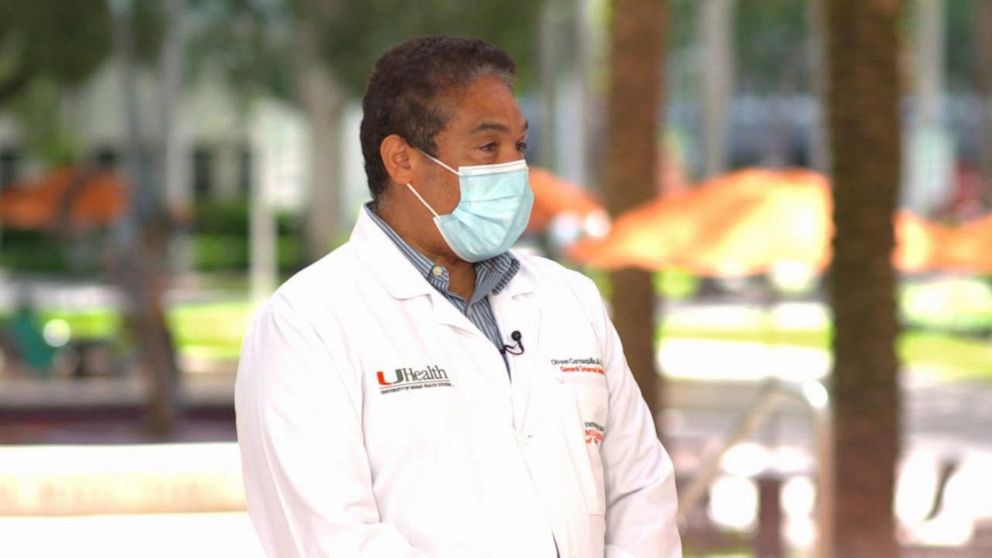
Carrasquillo is leading one of the clinical trials for the Johnson & Johnson COVID-19 vaccine and is calling for more diverse participants.
“We need more minorities -- both Latino [and] African American -- to participate in these studies. The problem is our risk factors are different,” said Carrasquillo. “We need to make sure these vaccines work on our people.”
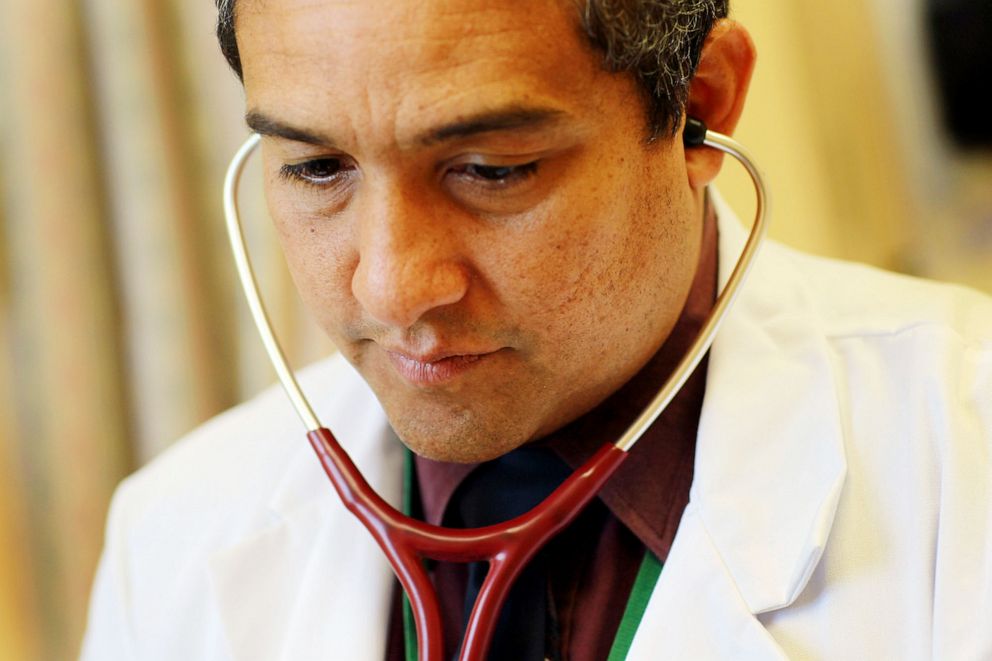
Martinez Felipe believes it has not been a fair fight for Latino communities like her own.
“We're losing more people because of our economic situations. Most of our families can't stay home, can't stop going to work,” said Martinez Felipe. “Sometimes I feel like I'm this close to just giving up, but I fight hard because I believe that's what my mom would have wanted for me and for my son.”
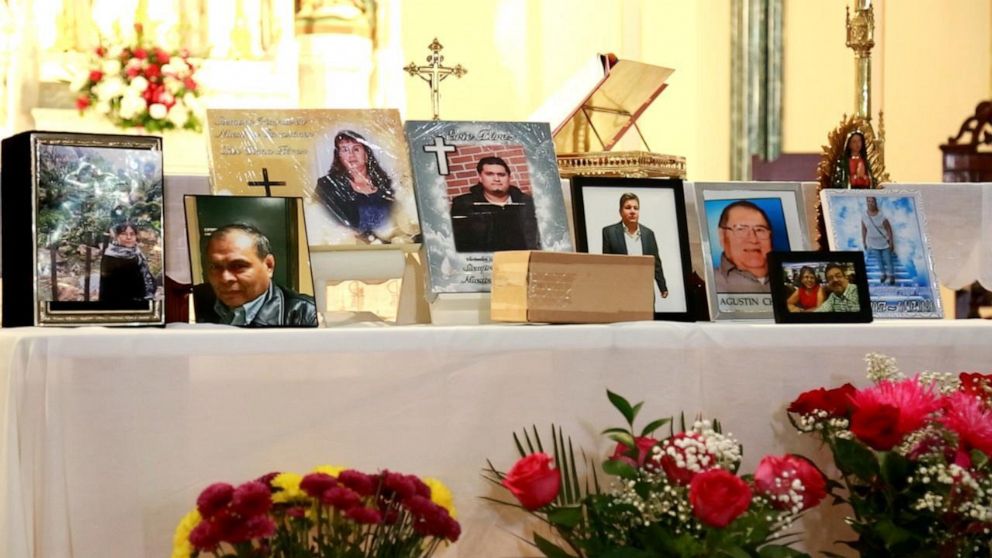
This Día de Los Muertos, Martinez Felipe plans to arrange photos of her mom on an ofrenda -- an altar filled with deceased loved ones’ favorite things.
“My mother had a tradition for Día de Los Muertos. She would always go to Mexico. She would leave the 27th or 28th of October, and she would put what we call 'una ofrenda,' to my grandparents, to my uncles, my aunts that have passed away, and I intend to do the same.”



